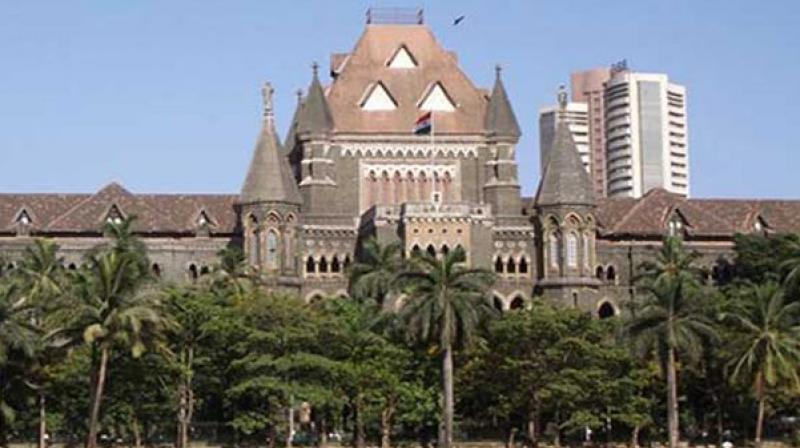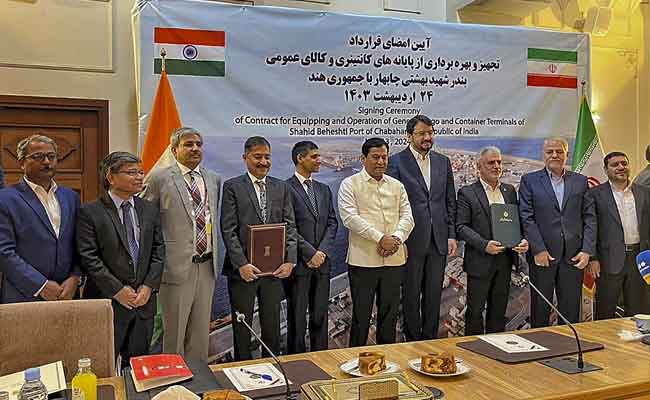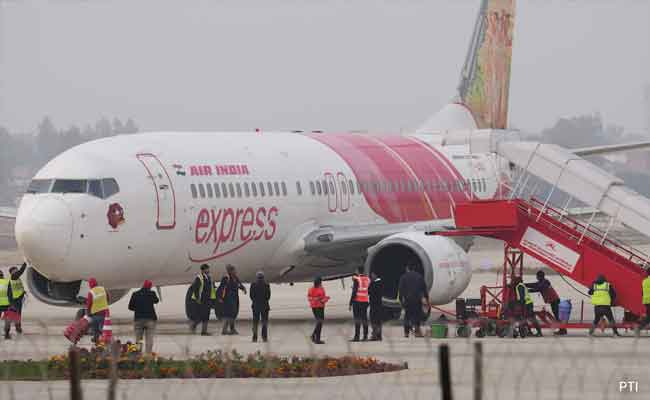Mumbai(PTI): The Bombay High Court has ruled that a DNA test cannot be said to be the "conclusive evidence" in a rape case, and can only be used for the purpose of corroboration.
Justice Bharati Dangre of the high court made this observation while rejecting the bail application of a Navi Mumbai-based man, accused of raping a 14-year-old girl, his neighbour.
The court had rejected the bail plea of the accused on July 26, but the detailed order was made available on Friday.
The accused in the case was arrested in September 2020. He had allegedly raped the girl multiple times for 10 days. The alleged crime had come to light after the victim complained of severe stomach pain. Her medical test had revealed that she was pregnant. A First Information Report (FIR) was later registered against the man at Nerul police station in Navi Mumbai, the charge sheet said.
The applicant (accused) took undue advantage of the situation of the victim girl, who was working in his house, it said.
The court said that even though the DNA test was negative, there was no reason to disbelieve the testimony of the victim, who has narrated the act of sexual assault upon her at the instance of the applicant (accused).
The DNA test cannot be said to be the conclusive evidence regarding a rape, but it can only be used as a corroborative evidence, the court said.
"It is not in dispute that the evidence of DNA analysis can be used for the purpose of corroboration. The statement of the victim girl as well as her mother is recorded under section 164 of the Code of Criminal Procedure (CrPC). The victim has specifically narrated about the incident of repeated sexual assault committed on her by the applicant," the court said.
Further, the victim specifically stated that the accused lured her by paying some amount and even threatened her not to disclose the incident to any person, which compelled her to keep mum. When her pregnancy was disclosed, she revealed to her parents that the applicant is responsible for the pregnancy and he had forced himself upon her.
"The DNA test excludes the applicant as the father of the child, but that does not discredit the victim who has reiterated in her 164 statement that the applicant forcibly committed sexual intercourse with her," Justice Dangre said.
The court said that in the wake of the observations of the Supreme Court, though a positive result of the DNA test would constitute clinching evidence against the accused, if the result is negative, the other material available on record will still have to be considered independently.
Let the Truth be known. If you read VB and like VB, please be a VB Supporter and Help us deliver the Truth to one and all.
Washington (PTI): Any country having business dealings with Iran runs the "potential risk of sanctions", the US has warned, noting that it is aware that Tehran and New Delhi have signed a deal concerning the Chabahar port.
India on Monday signed a 10-year contract to operate the strategic Iranian port of Chabahar that will help New Delhi expand trade with Central Asia.
Located in Sistan-Balochistan province on the energy-rich Iran's southern coast, the Chabahar port on the Gulf of Oman -- which New Delhi had proposed to develop way back in 2003 -- will provide Indian goods a gateway to reach landlocked Afghanistan and Central Asia using a road and rail project called International North-South Transport Corridor (INSTC), bypassing Pakistan.
US sanctions on Iran over its suspected nuclear programme had slowed the development of the port.
“We’re aware of these reports that Iran and India have signed a deal concerning the Chabahar port. I will let the government of India speak to its own foreign policy goals vis-a-vis the Chabahar port as well as its bilateral relationship with Iran,” State Department Deputy Spokesperson Vedant Patel told reporters at his daily news conference on Monday.
“I will just say, as it relates to the United States, US sanctions on Iran remain in place and we’ll continue to enforce them,” Patel said in response to a question on the Chabahar port deal.
“You’ve heard us say this in several instances, that any entity, anyone considering business deals with Iran, they need to be aware of the potential risk that they are opening themselves up to and the potential risk of sanctions,” Patel said.
India and Iran have projected the port as a key hub for the 7,200-km-long INSTC -- a multi-mode transport project for moving freight among India, Iran, Afghanistan, Armenia, Azerbaijan, Russia, Central Asia and Europe.
The long-term agreement was signed by Indian Ports Global Limited (IPGL) and the Port and Maritime Organisation of Iran, an official statement said.
IPGL will invest about USD 120 million while another USD 250 million will be raised as debt.
The agreement replaces an initial 2016 pact, which covered India's operations at the Shahid Beheshti terminal in Chabahar port and had been renewed on an annual basis.
Chabahar port was last year used by India to send 20,000 tonnes of wheat aid to Afghanistan. In 2021, the same was used to supply environmentally friendly pesticides to Iran.
Kandla port in Gujarat is the closest to the Chabahar port at 550 Nautical Miles while the distance between Chabahar and Mumbai is 786 Nautical Miles.





